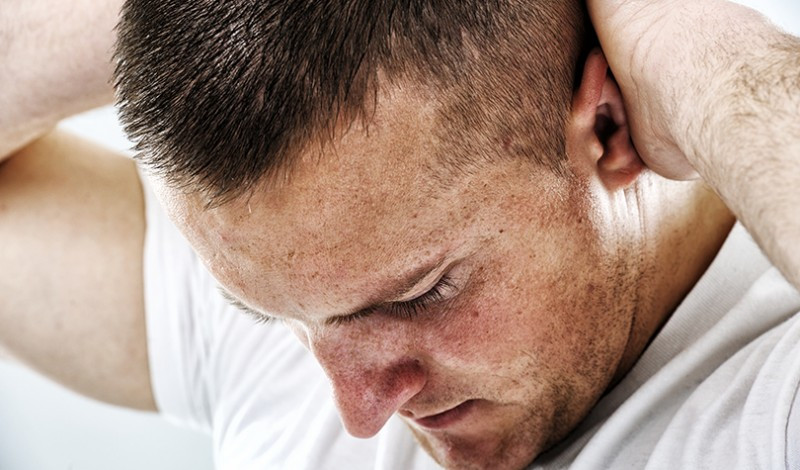Having a leaky bladder is no fun; neither is talking about it. But, per
Johns Hopkins Medicine, this issue (known as urinary incontinence) is actually quite common, and therefore needs to be discussed. A drawback of
not being willing to talk about incontinence is that an estimated 50 percent of people who experience it miss out on the chance to get help because they are reluctant to talk about it even with their personal physician! While both men and women experience incontinence, this article will focus on men.
What Causes Urinary Incontinence?
It helps to know that male urinary incontinence is not a disease but rather a symptom of an underlying problem, per
Michigan Medicine. To understand this, it's important to know some basic physiology:
After urine is produced in the kidneys, it goes to reside in the bladder, and then it travels through the urethra to exit your body. When urine is residing in the bladder, the urethra muscles are contracted while the bladder is relaxed. When it's time to pee, the urethra muscles relax while the bladder works to move the urine out. If either of these muscles doesn't do its job properly, incontinence can occur. Naturally, there are various potential causes for this.
Hopkins Medicine explains that there are usually two types of incontinence. The first is
stress incontinence, in which the muscles in your urinary system malfunction due to stress put on the abdomen from sneezing, coughing, or other activities. The other typical occurrence is
urge incontinence, in which, your brain, spinal cord and bladder don't work together properly to allow you to hold and release urine at the right time. It's important to know that
both types can happen at the same time. There are other possible causes, as well. It's also important to know that male incontinence doesn't occur entirely out of your control. Following are some ways to prevent it.
Lifestyle Factors to Prevent Male Incontinence
There are various lifestyle factors that can play a significant or even decisive role in the occurrence of male incontinence. These are the most important factors to consider if you want to prevent this problem.
Hopkins Medicine stresses that you
watch your diet and avoid certain foods in order to avoid male incontinence. This includes skipping alcohol, caffeine, chocolate, spicy foods, and others. Your diet is the primary way to avoid male incontinence, since many consumables such as caffeine and alcohol encourage urination much more so than healthier alternatives.
Keeping off excess weight/losing weight is another excellent way to prevent incontinence. Those who are overweight or obese are more likely to experience incontinence. This might be due to the added pressure placed on your urinary tract by the extra pounds.
Webmd.com mentions
Kegel exercises as an effective way to treat an overactive bladder, a common form of incontinence. These exercises are simple and very intuitive, and they can be done just about anywhere. Positive results can be seen from these exercises in three to six weeks, if you do them daily.
Supplements to Help Alleviate Male Incontinence
There is a dearth of clinical science on the use of natural supplements to treat incontinence, but the following supplements have been long used and shown some success in remedying urinary function:
Buchu is a shrub native to South America, and has been used to promote health urinary tract function and urine flow, per
myconfidentlife.com. The extract of this plant has also been used to treat urinary tract infections. Buchu has been favorably mentioned in a study published in
Reviews in Urology. Here at Wonder Labs, buchu is found in K-U supplements designed for overall urinary health
Gosha-jinki-kan is a traditional Japanese herb, or, actually, a combination of herbs, that has been mentioned favorably in the same study in
Reviews in Urology. Myconfidentlife.com mentions another study that discusses Gosha as useful in balancing one's sympathetic and parasympathetic nervous systems, which govern muscular impulses. It has been one of the most studied herb combinations in overcoming an overactive bladder.
Cornsilk has been thought to encourage urinary health for multiple reasons. It has been used to treat both bladder infections and urinary tract infection. It's also cited in
Reviews in Urology as a hopeful agent in treating incontinence.
Saw palmetto has been cited as a supplement helpful in overcoming enlarged prostate in men, per
myconfidentlife.com, which is one of the potential causes of incontinence.

